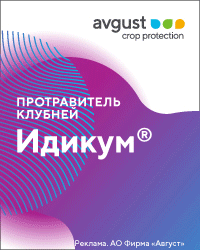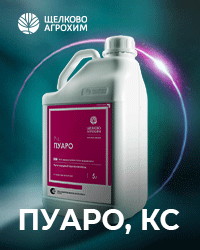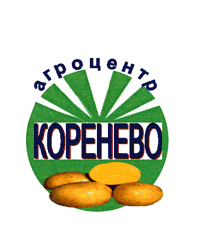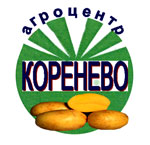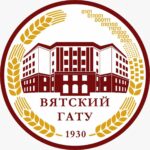UDC 635.342:635–18
https://doi.org/10.25630/PAV.2022.68.58.002
Virchenko I.I., Yanchenko E.V., Borisov V.A.
The purpose of the research: to find out the reaction of new cabbage hybrids to the use of various fertilizer systems (mineral, organic and organomineral), to assess the suitability of these hybrids for organic vegetable growing and to identify hybrids with the best biochemical quality indicators. Studies with eleven new hybrids of late-ripening white cabbage were carried out in 2020–2021 at the experimental site of the All-Russian Research Institute of Vegetable Growing – branch of Federal Scientific Centre of Vegetable Growing (Ramensky district, Moscow Region). The soil of the experimental site is alluvial meadow saturated, medium loamy, moisture-intensive, of a high degree of cultivation. Fertilizers were applied manually before planting seedlings: mineral in the form of nitroammophoski and potassium chloride, and organic in the form of chicken biocompost Biud by Tonex firm with a nitrogen content of 3%, P2O5–2%, K2O – 2%, organic matter – 30%, pH – 7–8. The high responsiveness of new hybrids of white cabbage to the organomineral fertilizer system, which allows increasing the yield of products by 55–71%, was revealed. On average, it increased the yield by 63%, and for individual hybrids (F1 Dobrodej) up to 71%, which allowed to bring the total yield to 79–88.9 t/ha. The mineral fertilizer system (N120P120K180) provided an average increase of heads at the level of 39%. F1 Continent and F1 Dobrodej were the most responsive to the application of mineral fertilizers compared to the control (an increase of 45%). The use of biocompost in a nitrogen-aligned dose with NPK allowed to increase the yield of heads by an average of 37%. The new hybrids F1 Kontinent, F1 Orfei, F1 Barynja and F1 Dobrodei turned out to be the most responsive to the use of an organic fertilizer system (yield increase of 40–44%) and are suitable for use in organic vegetable growing. The best biochemical quality indicators were characterized by: the accumulation of solids (12–12.9%) and sugars (5.42–5.76%) – F1 Gercoginja, F1 Prestizh and F1 Idillija; the accumulation of ascorbic acid – F1 Gercoginja (43.5 mg/100 g) and F1 Kontinent (33.8 mg/100 g); the least nitrates accumulated F1 Orion, F1 Prestizh and F1 Kontinent (101–124 mg/kg).
Key words: mineral fertilizers, biocompost, white cabbage, hybrid, quality
Virchenko I.I., Cand. Sci. (Agr.), senior research fellow of the department of agriculture and agricultural chemistry. E-mail: vniioh@yandex.ru
Yanchenko E.V., Cand. Sci. (Agr.), leading research fellow of the department of agriculture and agricultural chemistry. E-mail: elena_0881@mail.ru
Borisov V.А., Doc. Sci. (Agr.), Professor, chief researcher of the department of agriculture and agricultural chemistry. E-mail: valeri.borisov.39@mail.ru
All-Russian Research Institute of Vegetable Growing – branch of Federal Scientific Centre of Vegetable Growing (ARRIVG – branch of FSBSI FSVC)
- Kostenko G.A. Hybrid F1 Gertsoginya – a real example of import substitution. Potato and vegetables. 2019. No2. Pp. 39–40. DOI: 10.25630/PAV.2019.13.2.009. (In Russ.).
- Borisov V.A. System of fertilizers of vegetable crops. Moscow. FGBNU Rosinformagrotech. 2016. 394 p. (In Russ.).
- Borisov V.A. Responsiveness genotypes of cauliflower on the use of biocompost and mineral fertilizers. A.V. Borisov, I.I. Virchenko, E.V. Yanchenko, O.N. Uspenskaya. Potato and vegetables. 2022. No1. Pp. 19–22. DOI: 10.25630/PAV.2022.83.20.001. (In Russ.).
- Quality and optimal shelf life of late-maturing white cabbage. M.I. Ivanova, E.V. Yanchenko, A.V. Yanchenko, I.I. Virchenko. Technique and technology of food production. 2021. Vol. 51. No4. Pp. 690–700. DOI: 10.21603/2074–9414–2021–4–690–700. (In Russ.).
- Plant breeding for sustainability – the basis of protection from diseases in organic farming. S.G. Monakhos, A.V. Voronina, A.V. Baydina, O.N. Zubko. Potato and vegetables. 2019. No6. Pp. 38–40. DOI: 10.25630/PAV.2019.92.83.009. (In Russ.).
- Productivity, quality, and persistence of varieties and hybrids of cabbage of different ripeness groups. A.R. Bebris, I.I. Virchenko, E.V. Yanchenko, A.V. Yanchenko. Proceedings of the North Caucasian Federal scientific center of horticulture, viticulture and winemaking. 2020. Vol. 29. Pp. 95–100. DOI: 10.30679/2587–9847–2020–29–95–100. (In Russ.).
- Virchenko I.I., Yanchenko E.V. Results of variety testing of medium-late varieties and hybrids of white cabbage and their keeping capacity. Potato and vegetables. 2021. No1. Pp. 21–24. DOI: 10.25630/PAV.2021.57.43.001. (In Russ.).
- Influence of mineral fertilizers on the quality of cabbage. O.N. Uspenskaya, V.A. Borisov, I.Yu. Vasyuchkov, A.A. Kolomiets, G.A. Kostenko. Fertility. 2021. No4(121). Pp. 22–25. DOI: 10.25680/S19948603.2021.121.07. (In Russ.).
- Litvinov S.S. Methodology of field experience in vegetable growing. Moscow. Rossel'khozakademiya. 2011. 648 p. (In Russ.).
- Methodology of experimentation in vegetable growing and melon growing. Edited by V.F. Belik. Moscow. Agropromizdat. 1992. Pp. 134–138 (In Russ.).
For citing: Virchenko I.I., Yanchenko E.V., Borisov V.A. The effectiveness of the use of mineral fertilizers and biocompost in the cultivation of new domestic hybrids of white cabbage. Potato and vegetables. 2022. No3. Pp. 15-18. https://doi.org/10.25630/PAV.2022.68.58.002 (In Russ.).

